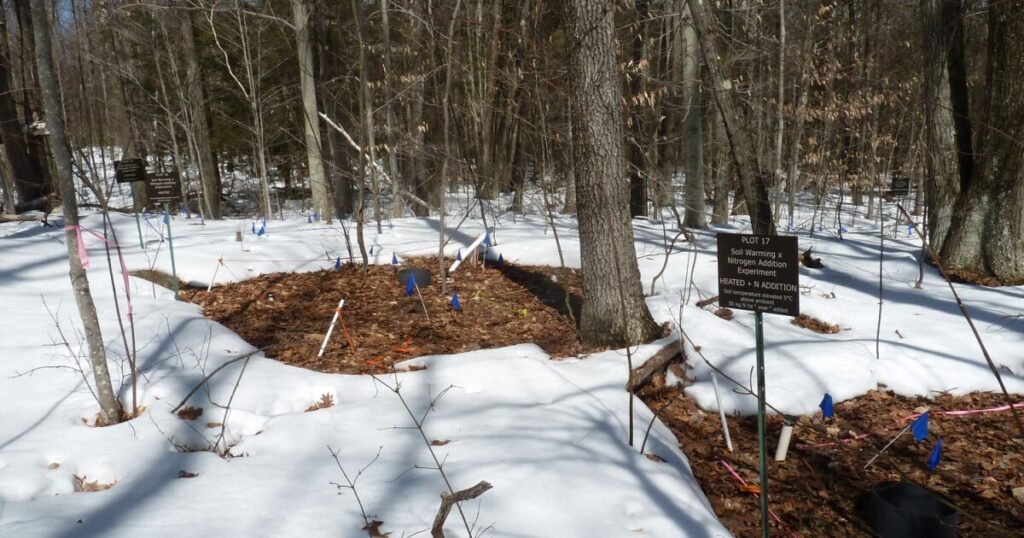A new study from the University of New Hampshire shows that the effects of climate change on forests in the Northeast may be more complex than previously thought.
Forests store large amounts of carbon, which prevents it from moving into the atmosphere and warming the planet. Trees also play a role, but soil stores about two-thirds of the carbon in terrestrial ecosystems, more than the carbon in the atmosphere and in vegetation combined.
Microbes in the soil break down that carbon and release it into the atmosphere. As the Earth warms, scientists are trying to understand how the balance between stored and released carbon is changing.
Selita Frey, an ecological ecologist at the University of New Hampshire, says most experiments that study large-scale environmental changes focus on the effects of one particular change.
However, this study focused on the interaction between two changes: warming soils and increasing nitrogen content. This increase is another effect of fossil fuel combustion, which releases nitrogen into the atmosphere through fuel combustion and vehicle exhaust, which is then deposited on land.
“In the real world, these things happen simultaneously, and there may be interactions that cannot be explained by studying single factors in isolation,” she says.
Past research has shown that warming the soil and adding nitrogen have opposite effects.
Warming the soil stimulates the microorganisms that live there, allowing them to break down organic material faster than normal. So over time, carbon is lost from the soil and more carbon is emitted into the atmosphere.
When more nitrogen is added to the soil, organic matter accumulates in the soil, increasing the amount of carbon in the soil.
Frey and her research team used data from a study conducted at the Harvard Forest Long-term Ecology Research Site in Massachusetts since 2006. The researchers studied the effects of both phenomena by burying heating cables under the soil and using backpacks to spread fertilizer. We spent 16 years together.
The study found that when soils warm up and are simultaneously supplied with more nitrogen, much more carbon dioxide comes out of the soil. But it also increases the amount of carbon in the soil. When used together, the effects balance each other out.
“I like to think of it as a bathtub,” Frey said. “The water level in the bathtub is the amount of organic matter in the soil.”
She said the faucet represents the amount of carbon entering the system. Drain is the loss of carbon due to decomposition. When the soil gets warmer and has more nitrogen, the faucet turns faster and drains more. However, the amount of water in the bathtub remains almost the same.
The study provided insight into how carbon moves in New England soils as climate change continues. But the bigger realization, Frey says, was the importance of studying multiple changes at once, and how those changes interact.
“For the past 20 years, we’ve been focused solely on soil warming. We’ve made some predictions about how much carbon will be lost from the soil in response to a warming climate. I think what we’re saying is we need to look at this in a more holistic way,” Frey said.
Long-term data from this study could help models predicting future climate scenarios paint a clearer picture, Frey said.

